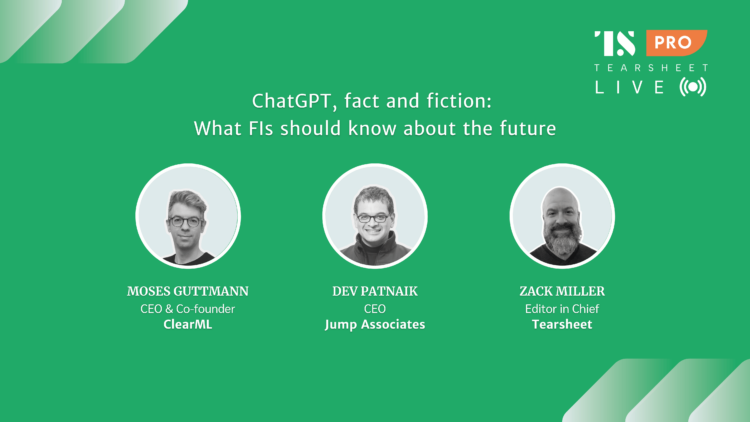Member Exclusive
Tearsheet Pro Live #1: ChatGPT, fact and fiction: What FIs should know about the future
- In this first Tearsheet Pro Live session, editor Zack Miller interviews a Stanford professor and a machine learning scientist about generative AI.
- Dev Patnaik and Moses Guttmann share their perspectives on the future impact of technology like ChatGPT on financial services.








